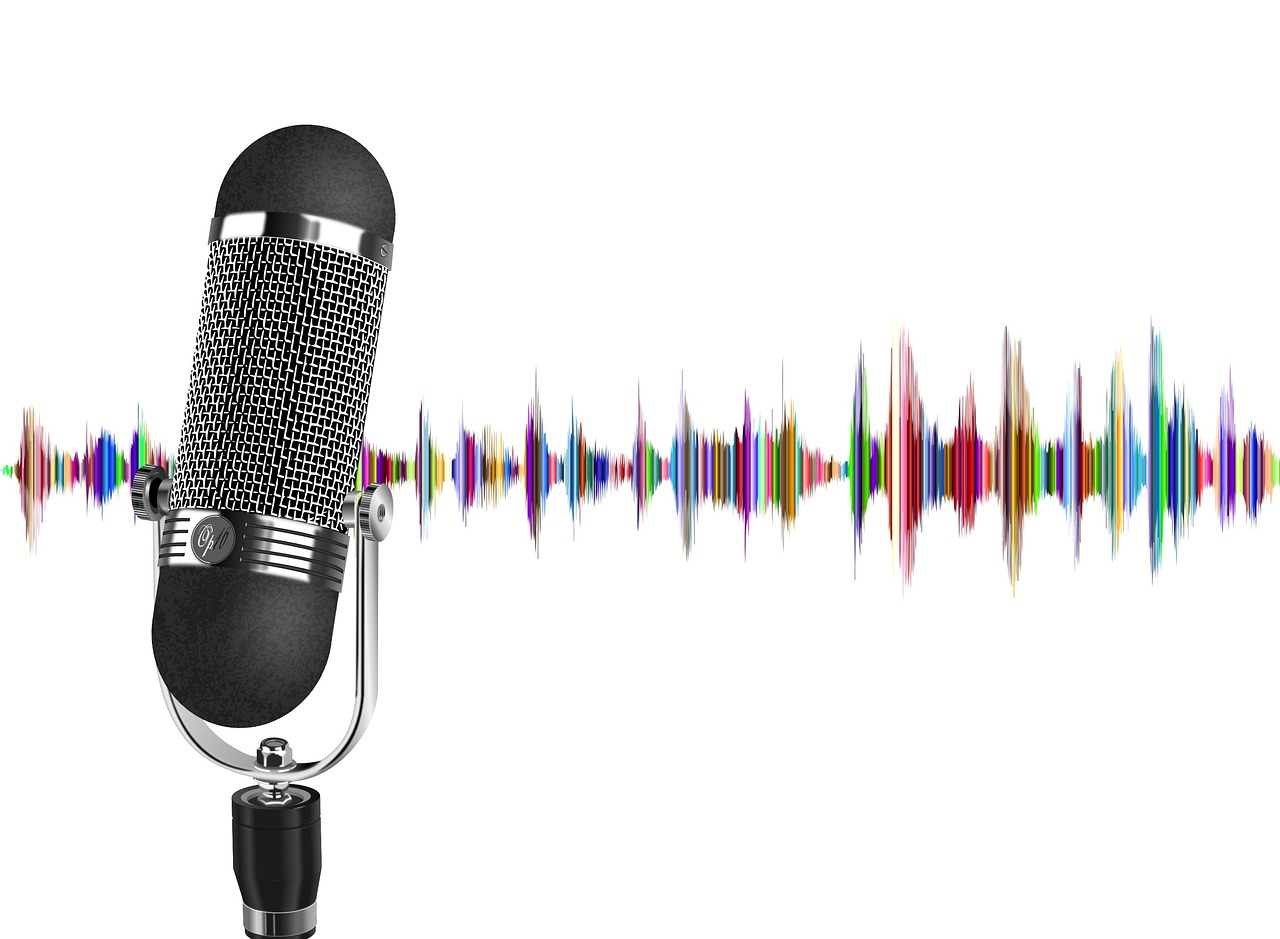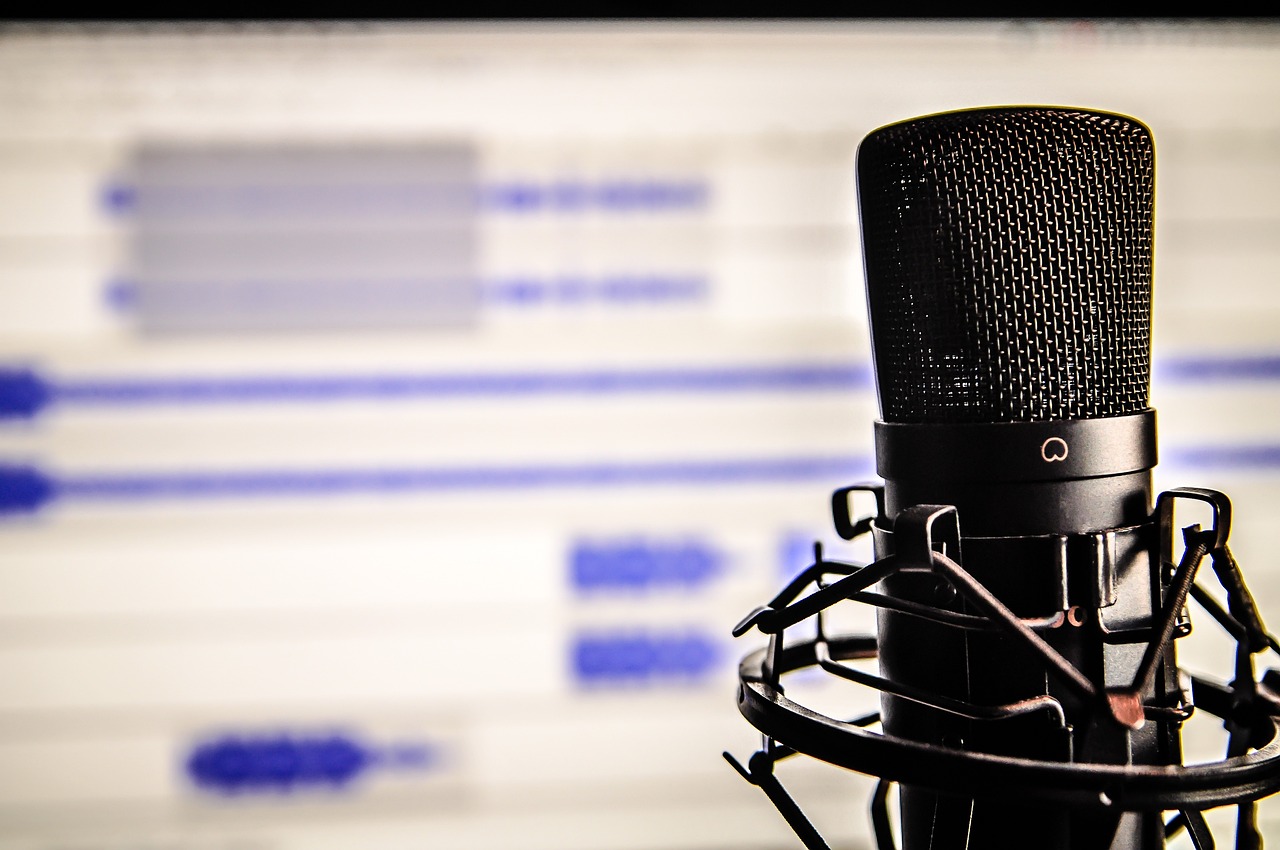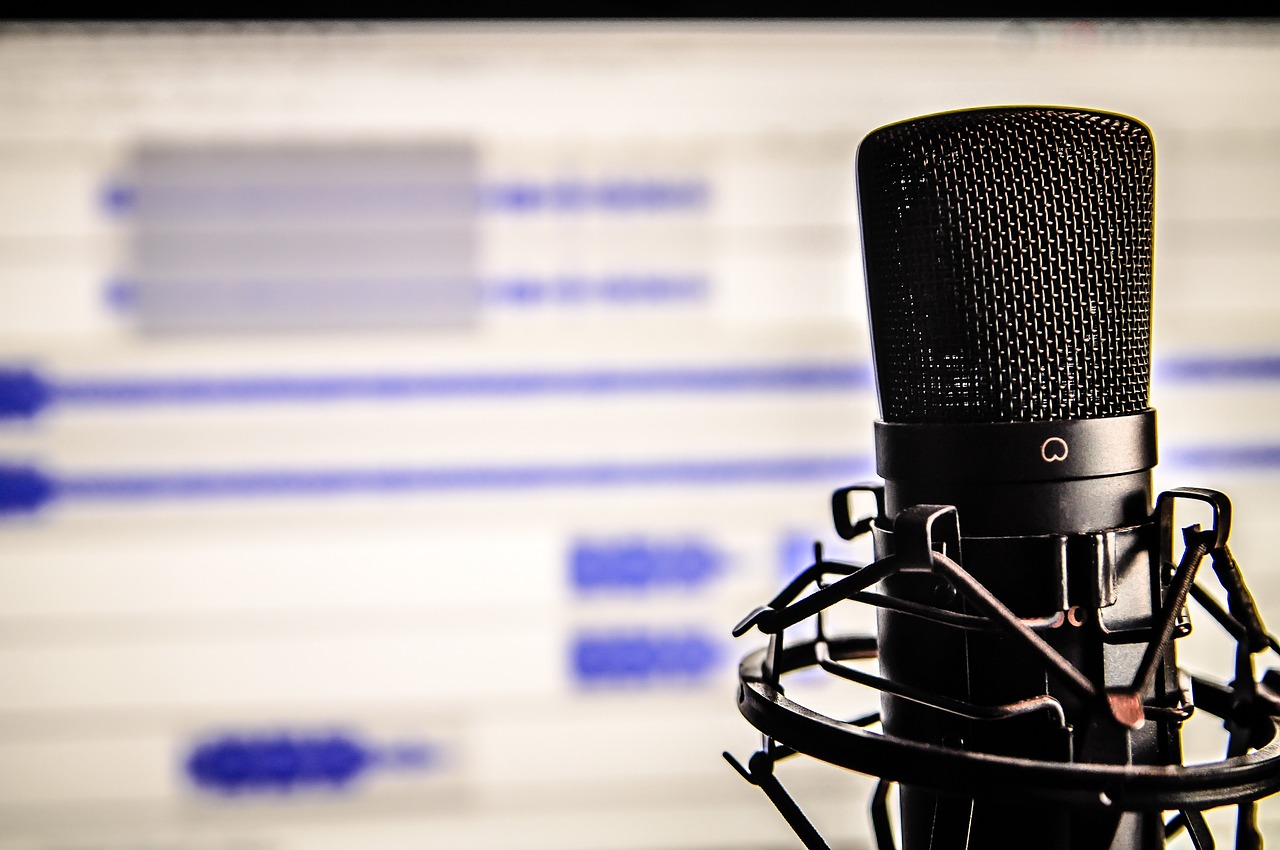Have you ever wondered how to listen to podcasts? In this article, we will explore the world of podcasts and provide you with a simple guide on how to get started. Whether you’re interested in interviews, storytelling, or educational content, podcasts offer a wealth of options to suit your interests. We’ll discuss the equipment you need, the different ways to access podcasts, and how to navigate and enjoy this popular form of audio entertainment. So, let’s dive into the wonderful world of podcasts and get ready to broaden your listening horizons!

Understanding What Podcasts Are
Defining podcasts
Podcasts are audio programs that are available for streaming or downloading on the internet. They are typically in the form of episodes and cover various topics, such as news, entertainment, education, storytelling, and more. Podcasts have gained popularity in recent years due to their convenience and accessibility.
Discussing the popularity of podcasts
Podcasts have become increasingly popular because they offer a unique and engaging way to consume content. People can listen to podcasts while commuting, exercising, or doing household chores. The convenience of podcasts allows individuals to stay entertained and informed while multitasking. Additionally, podcasts provide a platform for creative individuals to share their ideas, stories, and expertise with a global audience.
Different types of podcast genres available
There is a wide range of podcast genres available to suit different interests and preferences. Some popular genres include:
- True Crime: Podcasts that focus on real-life crime stories and investigations.
- Comedy: Podcasts that aim to entertain and make listeners laugh through comedic conversations or sketches.
- News and Politics: Podcasts that cover current events, politics, and analysis.
- Personal Development: Podcasts that provide guidance and insights on self-improvement, motivation, and mental health.
- Technology: Podcasts that discuss the latest trends, gadgets, and innovations in the tech industry.
- Sports: Podcasts that cover sports news, analysis, and interviews with athletes and experts.
- Business and Finance: Podcasts that offer advice, tips, and discussions on entrepreneurship, finance, and career development.
- Science and Education: Podcasts that explore scientific discoveries, educational topics, and interviews with experts in various fields.
These are just a few examples, and the podcasting landscape is continually expanding with new genres emerging.
Finding Podcasts
Where to find podcasts
There are several platforms where you can find and listen to podcasts. Some popular options include:
- Podcast-specific apps: Apps dedicated solely to podcast listening, such as Apple Podcasts, Spotify, Google Podcasts, and Stitcher.
- Podcast directories: Websites that curate and categorize podcasts, like Podchaser and Podcast Addict.
- Websites and blogs: Many podcasts have their own websites or are featured on popular blogs.
- Social media: Podcasters often promote their shows on social media platforms like Twitter, Instagram, and Facebook.
Popular podcast platforms
Apple Podcasts is one of the most popular platforms for podcast listening. It is pre-installed on Apple devices and offers a vast library of podcasts across different genres. Spotify is another well-known platform that has gained popularity for its extensive podcast collection, playlist integration, and personalized recommendations. Google Podcasts is an option for Android users, offering a straightforward interface and easy access to podcasts. These platforms have user-friendly interfaces that make it simple to discover, subscribe to, and listen to podcasts.
Understanding podcast directories
Podcast directories are online platforms that house a vast collection of podcasts. They serve as a catalog or search engine for podcasts, allowing users to browse by genre, topic, popularity, or keyword. These directories provide valuable information about each podcast, such as episode descriptions, ratings, and reviews. They are useful for discovering new podcasts and exploring content based on specific interests.
Suggestions for beginner-friendly podcasts
For those new to the world of podcasts, it can be overwhelming to know where to start. Here are a few beginner-friendly podcasts to consider:
- “The Daily” by The New York Times: This podcast covers the biggest stories of our time in a digestible format.
- “Stuff You Should Know” by HowStuffWorks: This podcast explores a wide range of interesting topics, answering questions you may have never thought to ask.
- “Serial”: This investigative journalism podcast tells captivating stories, often focusing on true crime cases.
- “TED Talks Daily”: This podcast features inspiring and thought-provoking talks from various TED events.
These podcasts offer compelling content, are well-produced, and provide a good introduction to the podcasting world.
Choosing a Podcast Listening Platform
Desktop options for listening to podcasts
If you prefer listening to podcasts on your computer, there are desktop platforms available for a seamless listening experience. Many podcast platforms have web-based versions, allowing you to access your subscriptions and listen to episodes directly from your browser. Alternatively, you can use media players such as iTunes or Windows Media Player, which have built-in podcast support.
Mobile apps for listening to podcasts
For on-the-go listening, mobile apps are the way to go. Podcast-specific apps like Apple Podcasts for iOS, Google Podcasts for Android, and Spotify offer intuitive interfaces and easy navigation. These apps allow you to subscribe to your favorite podcasts, download episodes for offline listening, and receive personalized recommendations based on your interests.
Platform specific features and differences
Each podcast listening platform offers its own unique features and user experience. For example, Apple Podcasts provides seamless integration with other Apple devices and offers features such as automatic syncing and episode recommendations. Spotify, on the other hand, allows users to create and share playlists featuring their favorite podcast episodes alongside music. Google Podcasts emphasizes simplicity and ease of use, with a clean interface and personalized recommendations based on your listening habits. It’s important to explore the features of different platforms to find one that suits your preferences and needs.
Downloading Podcasts
Steps on how to download a podcast
Downloading podcasts allows you to listen to episodes without an internet connection, which is especially useful when traveling or in areas with limited connectivity. Here’s how to download a podcast:
- Open your podcast listening app or platform.
- Search for the podcast you want to download using the search bar or browse through the available categories.
- Once you find the desired podcast, tap on it to see the list of available episodes.
- Select the episode you want to download, and look for a download button or an option to save the episode to your device.
- Click on the download button, and the episode will start downloading. The time it takes to download will depend on your internet connection speed.
- Once downloaded, the episode will be available in your app’s library for offline listening.
Differences between streaming and downloading
Streaming a podcast means listening to it in real-time over an internet connection. When you stream a podcast episode, you don’t have to wait for the entire file to download before you can start listening. On the other hand, downloading a podcast involves saving the episode to your device, allowing you to listen to it at any time, even without an internet connection. The choice between streaming and downloading depends on your preferences and the availability of a stable internet connection.
Managing podcast download settings
Most podcast apps have settings that allow you to manage your podcast downloads. You can typically adjust settings such as the number of episodes to download, whether to download new episodes automatically, and where to store downloaded episodes on your device. By configuring these settings, you can ensure that your podcast library stays organized and your device’s storage is used efficiently.

Subscribing to Podcasts
Benefits of subscribing to a podcast
Subscribing to a podcast means signing up to receive new episodes automatically. By subscribing to a podcast, you stay up-to-date with the latest episodes without manually searching for and downloading each new release. Subscriptions also allow you to receive notifications or updates regarding the podcast, such as bonus episodes or special events. Subscribing to podcasts saves time and ensures you don’t miss any new content from your favorite shows.
How to subscribe to a podcast
Subscribing to a podcast is typically a simple process. Here’s a general guide on how to subscribe to a podcast:
- Open your podcast app or platform and search for the podcast you want to subscribe to.
- Once you find the podcast, click on it to access the podcast’s page.
- Look for a “Subscribe” or “Follow” button, which is usually located near the cover art or at the top of the page.
- Click the “Subscribe” or “Follow” button, and you will be subscribed to the podcast.
- To access your subscribed podcasts, look for a dedicated section or tab within your app or platform.
Managing subscriptions
Managing your podcast subscriptions allows you to prioritize your listening and stay organized. Most podcast apps offer features to help you manage your subscriptions effectively. You can create playlists or filters to group podcasts by topic or priority. Additionally, you can unsubscribe from podcasts you no longer find interesting or relevant. By regularly evaluating and organizing your subscriptions, you can ensure that the podcasts you listen to align with your current interests and preferences.
Listening To Podcasts Offline
Benefits of listening to podcasts offline
Listening to podcasts offline has several advantages. Firstly, it allows you to enjoy your favorite podcasts during situations where an internet connection may not be available, such as when traveling or in remote areas. Offline listening also minimizes data usage, making it a suitable option for individuals with limited data or when Wi-Fi access is unreliable. Lastly, offline listening allows for uninterrupted playback, eliminating pauses or buffering caused by a poor internet connection.
How to listen to podcasts offline
To listen to podcasts offline, you need to download episodes onto your device beforehand. Once you have downloaded the desired episodes, you can listen to them without an internet connection. Simply open your podcast listening app and access the downloaded episodes within your library or downloads section. From there, you can play the episode as you would with any other media file on your device.
Tips for saving storage while listening offline
Downloading multiple podcast episodes can occupy a significant amount of storage on your device. To save storage space while still enjoying offline listening, consider the following tips:
- Delete episodes after listening: Once you’ve finished listening to an episode, remove it from your downloads or delete it from your device to free up storage.
- Adjust download settings: Limit the number of episodes you download and set your app to automatically delete episodes after a certain period. This ensures that your device doesn’t become cluttered with unnecessary files.
- Use streaming for older episodes: If you don’t listen to certain episodes frequently, consider streaming them instead of downloading. This saves storage and ensures you can access the episodes when needed.
By implementing these tips, you can optimize your device’s storage while still enjoying your favorite podcasts offline.

Understanding Podcast Formats
Most common podcast format types
Podcasts come in different formats, each catering to different content styles and preferences. Here are some of the most common podcast formats:
- Interview-based podcasts: These podcasts feature interviews with guests or experts discussing various topics.
- Narrative storytelling podcasts: These podcasts tell stories using dramatic or narrative techniques, often with a series or an ongoing storyline.
- Educational podcasts: These podcasts focus on teaching listeners about specific subjects or providing insights on various educational topics.
- Roundtable discussion podcasts: These podcasts involve a group of hosts or experts engaging in conversational discussions on specific topics.
- Solo-hosted podcasts: These podcasts feature a single host who presents and discusses a particular topic, often incorporating personal anecdotes or experiences.
These formats are not mutually exclusive, and many podcasts blend elements from different formats to create a unique listening experience.
Differences between podcast formats
The choice of podcast format greatly influences the listening experience and the way the content is presented. Interview-based podcasts provide opportunities to learn from experts and gain unique insights through conversations. Narrative storytelling podcasts offer immersive storytelling experiences, captivating listeners with gripping narratives. Educational podcasts focus on delivering informative content and providing listeners with new knowledge and perspectives. Roundtable discussion podcasts encourage diverse opinions and thought-provoking discussions. Solo-hosted podcasts offer a personal touch, as the host shares their thoughts, experiences, and expertise in a more intimate setting. It’s essential to explore different podcast formats to find the ones that resonate with you and your preferred listening style.
Choosing a podcast based on its format
When choosing a podcast, considering the format is crucial in finding content that aligns with your interests and preferred listening experience. If you enjoy in-depth conversations and learning from experts, interview-based podcasts might be suitable for you. If you prefer engaging narratives and storytelling, narrative podcasts can offer an immersive experience. For those seeking educational content, educational podcasts can provide valuable insights and knowledge. Exploring podcasts across different formats allows you to diversify your listening experience and discover new perspectives.
Exploring Podcast Genres
Overview of various podcast genres
Podcasts cover a wide range of genres, catering to diverse interests and tastes. Here’s an overview of some popular podcast genres:
- True Crime: Delving into real-life crime stories, investigations, and mysteries.
- Comedy: Offering light-hearted entertainment through comedic conversations, sketches, or stand-up performances.
- News and Politics: Keeping listeners informed about current events, politics, and analysis.
- Personal Development: Providing guidance on self-improvement, motivation, mental health, and personal growth.
- Technology: Exploring the latest trends, gadgets, and innovations in the world of technology.
- Sports: Covering sports news, analysis, and interviews with athletes and experts.
- Business and Finance: Offering advice, tips, and discussions on entrepreneurship, finance, and career development.
- Science and Education: Exploring scientific discoveries, educational topics, and insights from experts in various fields.
These genres are just a starting point, and the podcasting landscape continues to expand with new genres emerging.
Popular podcasts within each genre
Within each genre, there are numerous popular podcasts that have gained widespread acclaim and a dedicated audience. Here are some examples of popular podcasts within different genres:
- True Crime: “Serial,” “My Favorite Murder,” “Crime Junkie”
- Comedy: “The Joe Rogan Experience,” “Conan O’Brien Needs a Friend,” “The Dollop”
- News and Politics: “The Daily,” “Pod Save America,” “The Ben Shapiro Show”
- Personal Development: “The Tony Robbins Podcast,” “The Tim Ferriss Show,” “The School of Greatness with Lewis Howes”
- Technology: “Reply All,” “The Vergecast,” “Accidental Tech Podcast”
- Sports: “The Bill Simmons Podcast,” “Pardon My Take,” “The Lowe Post”
- Business and Finance: “The Dave Ramsey Show,” “How I Built This,” “Planet Money”
- Science and Education: “Radiolab,” “Stuff You Should Know,” “TED Radio Hour”
These podcasts offer engaging content, high-quality production, and are embraced by listeners worldwide.
Selecting podcasts based on your interests
When choosing podcasts, consider your interests and hobbies to find content that resonates with you. Think about the topics and genres that captivate your attention and the areas in which you seek to gain knowledge or entertainment. Exploring podcasts within your areas of interest allows you to discover niche content, expand your horizons, and connect with like-minded individuals. Additionally, many podcast platforms and directories allow you to search and filter podcasts by specific genres, making it easier to find podcasts that align with your preferences.

Guidelines to Enjoying Podcasts
Setting the right environment for listening to podcasts
Creating the right environment for listening to podcasts can enhance your overall experience. Here are a few guidelines to consider:
- Find a quiet space: Find a quiet and comfortable space where you can focus on the podcast without distractions.
- Use headphones or quality speakers: Invest in a good pair of headphones or quality speakers to ensure clear and immersive audio.
- Minimize interruptions: Put your phone on silent or activate a “Do Not Disturb” mode to avoid interruptions while listening.
- Consider background noise: If you enjoy listening to podcasts as background noise during chores or daily activities, choose content that is easy to follow and does not require constant focus.
- Take breaks: If you’re listening to longer podcast episodes, consider taking short breaks to avoid listener fatigue or to reflect on the content.
By setting the right environment, you can fully engage with the podcast and make the most of your listening experience.
Balancing podcast listening with other activities
Podcasts offer great flexibility as they can be enjoyed while engaging in other activities. However, it’s important to find a balance between listening to podcasts and other aspects of your life. Here are a few tips to help you achieve a healthy balance:
- Prioritize important tasks: Allocate dedicated time for essential tasks that require your full attention, such as work or studying.
- Multitask mindfully: Engage in activities that complement podcast listening, such as exercising, cooking, or commuting. Be mindful of not distracting yourself from tasks that require your full concentration, such as driving or operating machinery.
- Allow for leisure time: Set aside leisure time to relax and solely focus on enjoying your favorite podcasts without feeling rushed or overwhelmed.
- Adjust listening speed: Some podcast platforms allow you to adjust the playback speed, enabling you to listen to episodes at a faster pace. This can help you consume more content within a limited time but be mindful of not sacrificing comprehension or enjoyment of the content.
By finding a healthy balance, you can enjoy podcasts while still effectively managing your time and responsibilities.
Using podcasts for learning new skills
Podcasts can be an excellent tool for learning new skills or gaining knowledge on various subjects. Here are a few ways you can use podcasts for education and personal development:
- Explore educational podcasts: Look for podcasts that cover the topics you’re interested in or want to learn more about. Many podcasts offer expert insights, industry trends, and valuable advice that can enhance your knowledge and skills.
- Take notes and apply learnings: Treat podcasts as a form of active learning by taking notes or reflecting on key takeaways. Apply what you learn in your personal or professional life to maximize the value you gain from podcast episodes.
- Utilize podcast communities: Engage with other podcast listeners by joining online communities, participating in discussions, or connecting with hosts and guests. These communities often provide additional resources, recommendations, and opportunities for learning and growth.
Using podcasts as a learning tool allows you to stay curious, expand your knowledge, and acquire new skills in an easily accessible and engaging format.
Using Podcasts for Education and Personal Development
Academic podcasts
Academic podcasts offer a unique way to supplement traditional education or satisfy your intellectual curiosity. Many universities, scholars, and experts produce podcasts that delve into academic subjects, discussions, and research. These podcasts enable you to stay updated with academic trends, gain insights from leading researchers, and engage with complex topics in an accessible format. Whether you’re pursuing a formal education or simply interested in lifelong learning, academic podcasts provide a wealth of knowledge across various disciplines.
Podcasts for professional development
Podcasts can be a valuable resource for professional development, regardless of your industry or career path. Many podcasts cover topics such as leadership, productivity, innovation, and professional growth. By listening to podcasts related to your field or areas of interest, you can gain insights and perspectives from industry experts, stay informed about current trends, acquire new skills, and find inspiration for your career advancement. Additionally, career-oriented podcasts often feature interviews with successful professionals, providing valuable advice and lessons learned from their experiences.
Personal growth podcasts
Personal growth podcasts offer guidance, motivation, and insights for individuals seeking to improve various aspects of their lives. Whether you’re looking to enhance your mental well-being, develop healthier habits, boost self-confidence, or navigate personal relationships, personal growth podcasts cover a wide range of topics. These podcasts often feature discussions on mindfulness, self-improvement techniques, goal setting, and self-reflection exercises. Listening to personal growth podcasts can inspire you to embrace positivity, foster personal growth, and take proactive steps towards a fulfilling and balanced life.
Podcasts have emerged as a dynamic and accessible medium for education, entertainment, and personal development. With countless genres, formats, and topics to explore, there is a podcast for everyone. By understanding what podcasts are, finding and subscribing to your favorite shows, and creating an optimal listening environment, you can maximize the enjoyment and benefits of podcasting in your life. Whether you’re seeking to learn, be entertained, or grow as an individual, the world of podcasts has something to offer.

